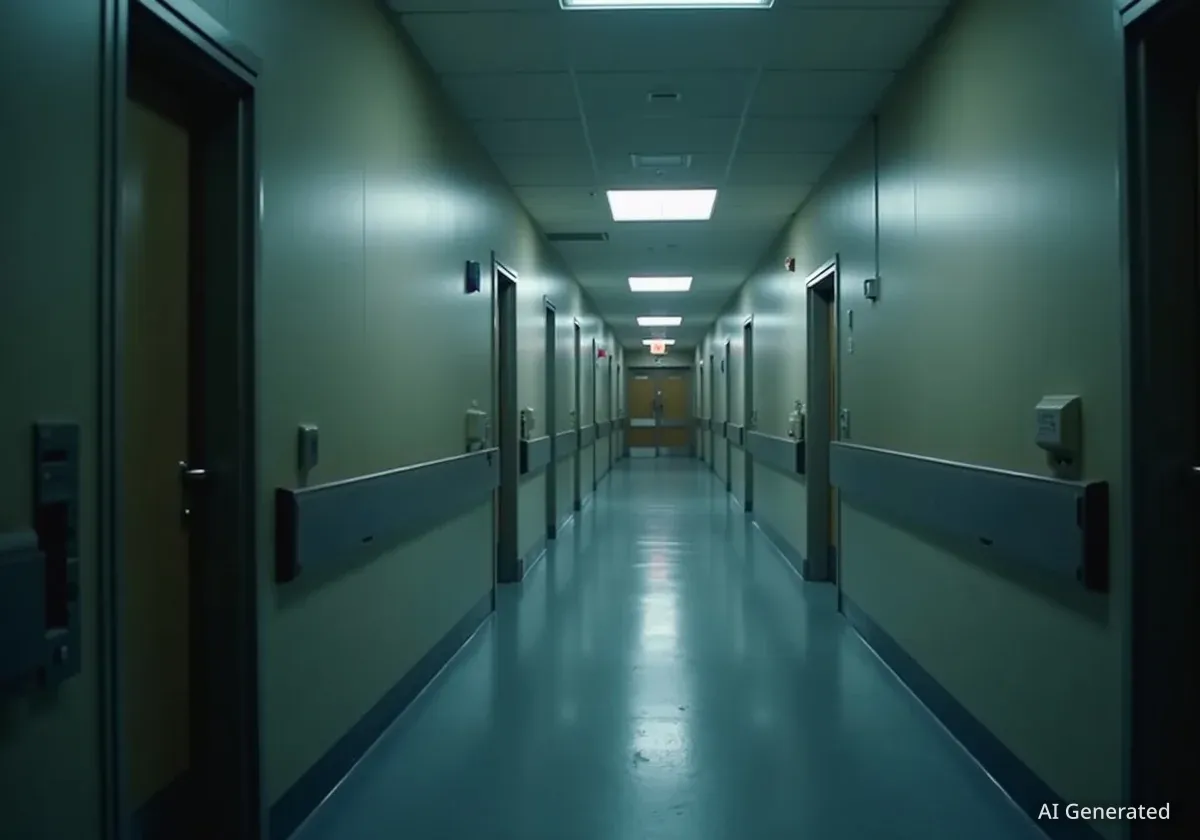A 27-year-old man who expressed he did not want to be discharged from a mental health hospital was found dead just six days after his release, an inquest has concluded. Patrick Liam Coyle, originally from Wigan, was discovered in a flat in Accrington on March 10, 2024, following a rapid decline in his mental state.
Despite seeking readmission at an A&E department three days after his discharge, he was assessed as safe to be released. The coroner later highlighted his struggles with alcohol and mental health, noting that his intentions at the time of his death could not be determined due to his condition.
Key Takeaways
- Patrick Liam Coyle, 27, was found dead on March 10, 2024, in Accrington.
- He had been discharged from a mental health facility on March 4, against his wishes.
- Three days later, he sought readmission at A&E but was deemed safe for release.
- An inquest delivered a narrative conclusion, citing his mental health deterioration and alcohol use.
- The coroner stated it was impossible to determine his intentions at the time of his death.
Discharge from Hospital Against His Wishes
An inquest held at County Hall in Preston examined the circumstances leading to the death of Patrick Liam Coyle. The court heard that Mr. Coyle had been an inpatient at a mental health hospital for a significant period. He was officially discharged on Monday, March 4, 2024.
Crucially, the inquest was told that Mr. Coyle did not want to be discharged from the facility. He had expressed a desire to remain in care, raising concerns about his readiness to leave the structured support of the hospital environment.
Despite his pleas, the decision was made for his release. This marked the beginning of a six-day period during which his condition worsened considerably, culminating in his death.
Timeline of Events
- March 4: Discharged from mental health hospital.
- March 7: Attended A&E seeking readmission.
- March 8: Last contact with mental health support workers.
- March 10: Found deceased at a flat in Accrington.
Rapid Decline and Attempts to Seek Help
Following his discharge, Mr. Coyle's mental health deteriorated. According to the inquest findings, he struggled significantly in the days after leaving the hospital. His condition was compounded by an ongoing battle with alcohol addiction.
On Thursday, March 7, only three days after his release, Mr. Coyle presented himself at an Accident and Emergency department. He explicitly requested to be readmitted to a mental health facility, indicating he was not coping.
Mental health workers assessed him at the A&E. During this assessment, Mr. Coyle stated that he had no intention of taking his own life. Based on this, he was deemed safe for discharge and was sent home without being readmitted.
The following day, Friday, March 8, mental health support workers visited him at his residence. Again, he denied having any current suicidal thoughts. The support team made plans for follow-up care for the subsequent week. However, this was the last time anyone had contact with him.
Coroner's Narrative Conclusion
After hearing all the evidence over a two-day period, Area Coroner Kate Bisset provided a narrative conclusion. This type of conclusion details the factual circumstances surrounding a death without attributing it to a specific legal cause like suicide or accident when the intent is unclear.
What is a Narrative Conclusion?
A narrative conclusion is a brief summary of the facts found by the coroner. It is used in inquests when the evidence does not fully or clearly explain the death in a way that fits a standard short-form conclusion, such as "suicide" or "accidental death." It focuses on the factual matrix of events leading to the death.
In her statement, Coroner Bisset detailed the key factors in Mr. Coyle's case. She confirmed the date and location of his death and his history of mental health challenges.
"Mr Coyle had struggled with his mental health for some time and had a recent, lengthy inpatient stay in a mental health hospital from which he had been discharged on the 4th March 2024. Mr Coyle did not want to be discharged from hospital."
The coroner emphasized the link between his alcohol use and increased risk.
"He struggled with alcohol addiction and, when intoxicated, his risks of impulsive behaviour and harm to himself increased. In the days since his discharge, Mr Coyle had been increasingly mentally unwell. He had used alcohol and consumed medication to excess."
Uncertain Intentions
The coroner's conclusion addressed Mr. Coyle's attempts to get help and the final assessment of his state of mind. She noted his expressed wish to return to inpatient care and the outcome of his A&E visit.
The final part of her statement focused on the difficulty of determining Mr. Coyle's intent at the time he took the actions that led to his death. His intoxication and deteriorating mental state made it impossible to be certain about his motivations.
Coroner Bisset concluded: "It is not possible to determine Mr Coyle's intentions at the time [he took steps towards ending his life] due to his intoxication and mental health deterioration prior to the act."
Mr. Coyle, a warehouse worker from Winstanley, Wigan, was pronounced dead at the scene by emergency services who were called to the address at 35 Victor Street, Clayton-Le-Moors, Accrington. His death highlights ongoing concerns about the transition of vulnerable individuals from inpatient mental health care back into the community.





